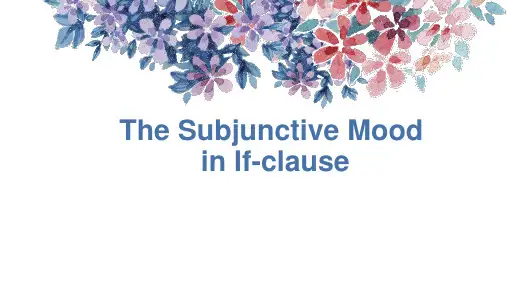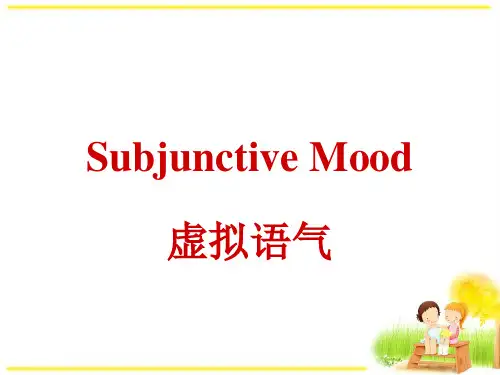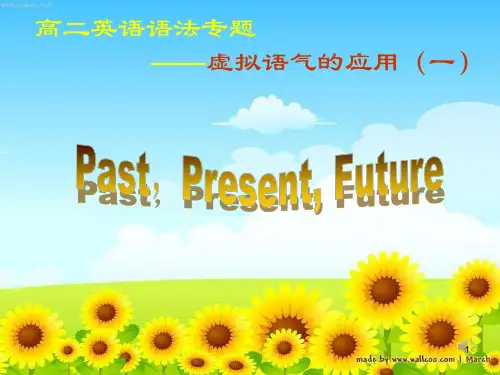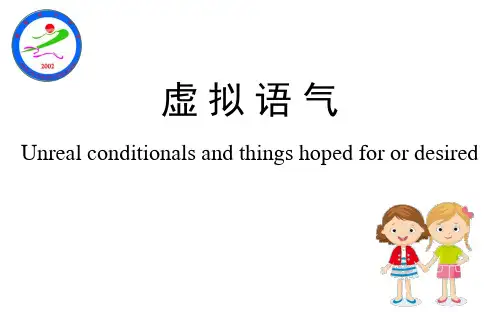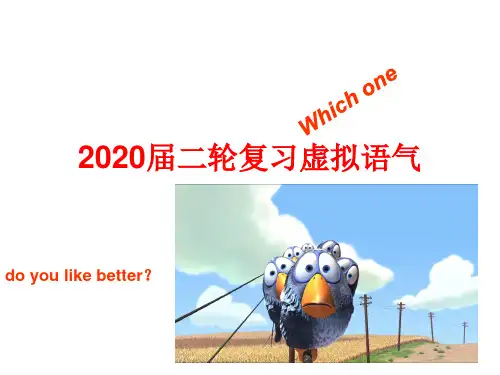3. 有时,虚拟条件句中,主句和条件从句 的谓语动作若不是同时发生时,虚拟语气的 形式应做相应的调整,这种条件句叫做错综 条件句(混合条件句)。
If I had worked hard at school, I would be an engineer now(. 从句说明过去,主句说明现在)
If I were you, I would have taken his advice. (从句说明现在,主句说明过去)
名词形式: order, advice, suggestion, proposal, demand, desire, request, requirement
Without your instruction, I would not have made such great progress. 要是没有 你的指导,我不会取得如此大的进步。
(二)、虚拟语气在其他从句中的使用
1. 英语中,表示坚持、命令、建议、 要求等 意义的动词所接的名词性从句一般用虚拟语 气,其虚拟语气的结构为:(should)+ 动 词原形。
非真实条件句: 也叫虚拟条件句,表示 与现实情况相反的假设情况。主句和 从句中的谓语动词都需要使用虚拟语 气。
If I were you, I would go at once. If there were no air, people would die.
(一)、虚拟语气在条件句中的使用
Task1: 观察下面三组例句,说出它们分别是对 现在、过去,还是将来的假设; Task2: 总结if条件句中虚拟语气的形式。
5. 如果你听了我的建议,你就不会考试不及格。 ( follow one’s advice)
6. 如果我早点到那儿,我就会见到她了。

